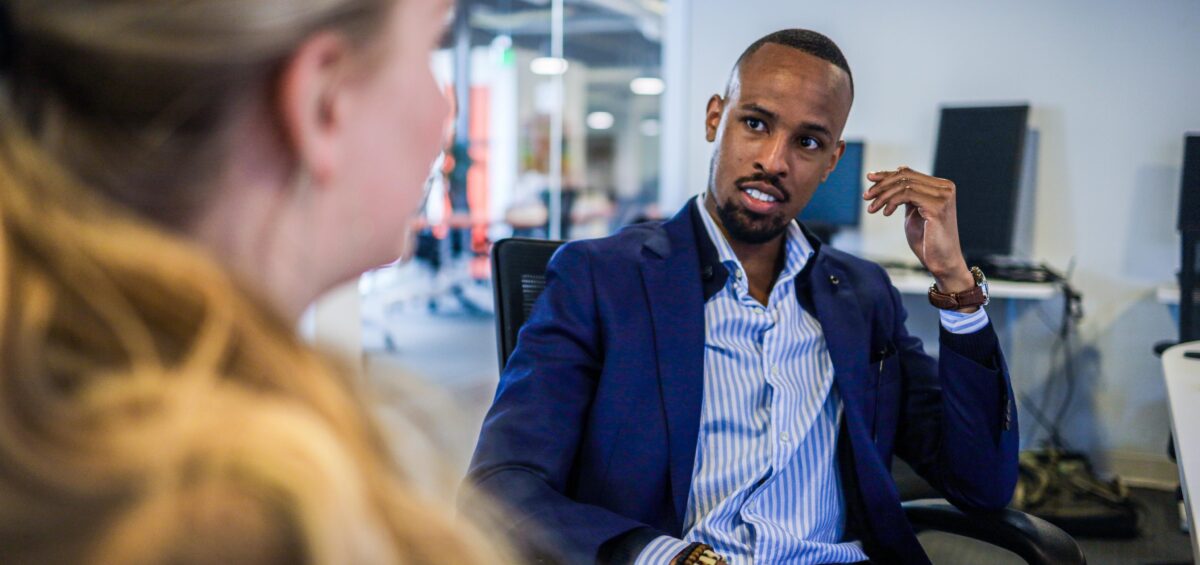Struggling with Case Consultation? Ask Yourself These Questions
By Shannon Heers
As a counselor, therapist or social worker, you’ve taken part in case consultations on various different levels. Starting with your graduate school program and then segueing into your professional work in the field, you have always had colleagues to consult with on your cases. But now you’re in a place professionally where you don’t have access to case consultation, either from a clinical supervisor or your peers, and you’re struggling a bit.
Here are some questions that you can ask yourself regarding case consultation that can help move you into a more supportive environment to get your case consultation needs met.

Who do I know that I can do case consultation with?
At this point you’ll want to spend some time thinking about who you’re surrounding yourself with professionally. If you’re practicing in isolation without any contact with other therapists or counselors, that’s a warning sign for yourself. Without access to a professional support system who can provide you with case consultation or discussion on other professional or clinical issues, you’ll likely end up missing a lot and perhaps putting yourself into sticky ethical situations.
If you’re new to an area or don’t have a professional network in place, now is the time to start reaching out to colleagues and peers. Ask to buy coffee for other therapists who have similar work situations or work with similar clients. See if you can do a quick introductory Zoom meeting with another therapist across town, or introduce yourself to the therapist in the office suite next to yours. Make friends and expand your professional network, so you’re not feeling so alone!
Do I prefer to get case consultation from peers or a clinical supervisor?

What type of case consultation are you looking for? Are you looking for a group consultation situation that is put together by peers? Or perhaps working individually with a trusted supervisor who you have a relationship with for individual consultation is more your style. Or maybe even doing group clinical consultation where you review cases, each therapist taking a turn, and facilitated by an experienced clinical supervisor is something that you’re more interested in.
Maybe finances play a role in this decision. If you cannot afford to pay to work with a clinical supervisor individually, or join a monthly clinical consultation group, seeking out peers for case consultation is one way to go. Just be aware that not everyone in the group will share your same commitment to the group or process, and often the peer who steps up to organize and facilitate the group doesn’t end up getting much out of the group.
What types of cases do I want consultation on?
What are your specialty areas, and/or the types of clients that you want case consultation on? If you’re in a case consultation group (whether peer-run or facilitated by a clinical supervisor) or doing individual case consultation with another professional or supervisor, you want to make sure who you’re consulting with has more experience and training with these types of cases than you do.
Are you seeking out case consultation for your trauma clients, or those with substance abuse issues that you’re not yet confident in treating? Or perhaps you’re working primarily with older adults and there are few others in your area who also specialize in this. Then you want to seek out colleagues or supervisors who have worked with these clinical populations, and who can provide the type of support you’re looking for.
Another way to seek out consultation is through your theoretical modality or who you identify as, as a therapist. Are you a psychoanalytic therapist who is looking for psychodynamic group consultation, or are you looking for a CBT oriented consultation group? Or perhaps you’re a trauma therapist looking for a consultation group that focuses on the mind-body connection. Seek out and find what you’re looking for, it probably already exists!
What do I want to get out of case consultation?

Are you looking for understanding and empathy for your professional work, or different clinical interventions to use for your clients? Are you wanting to be guided within a particular theoretical orientation, or wanting to learn about the court system for working with your high conflict families? Know what you want to get out of case consultation before you seek out this service, and then it’s more likely that you’ll be successful.
Case conceptualization is such a valuable process in your professional development as a counselor, therapist or social worker. High quality case conceptualization will help you prevent burnout, avoid sticky ethical situations, and provide your clients with better care and improved treatment outcomes. Hopefully, if you ask yourself these questions about case conceptualization, you’re now ready to seek out the professional support you need and deserve.
How can we help
If you’re interested in learning about our clinical supervision groups that review case conceptualization, click here to see our current group offerings led by our trained and experienced clinical supervisors.
Author Bio
 Shannon Heers is a psychotherapist, approved clinical supervisor, guest blogger, and the owner of a group psychotherapy practice in the Denver area. Shannon helps adults in professional careers manage anxiety, depression, work-life balance, and grief and loss. Follow Firelight Supervision on Instagram.
Shannon Heers is a psychotherapist, approved clinical supervisor, guest blogger, and the owner of a group psychotherapy practice in the Denver area. Shannon helps adults in professional careers manage anxiety, depression, work-life balance, and grief and loss. Follow Firelight Supervision on Instagram.



